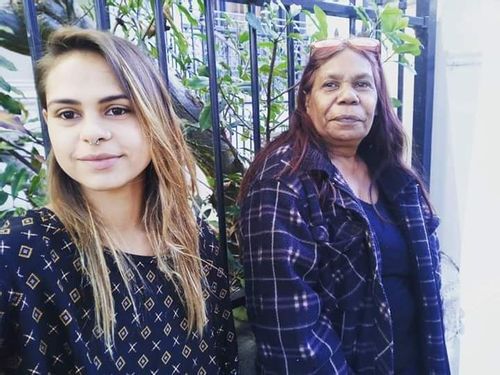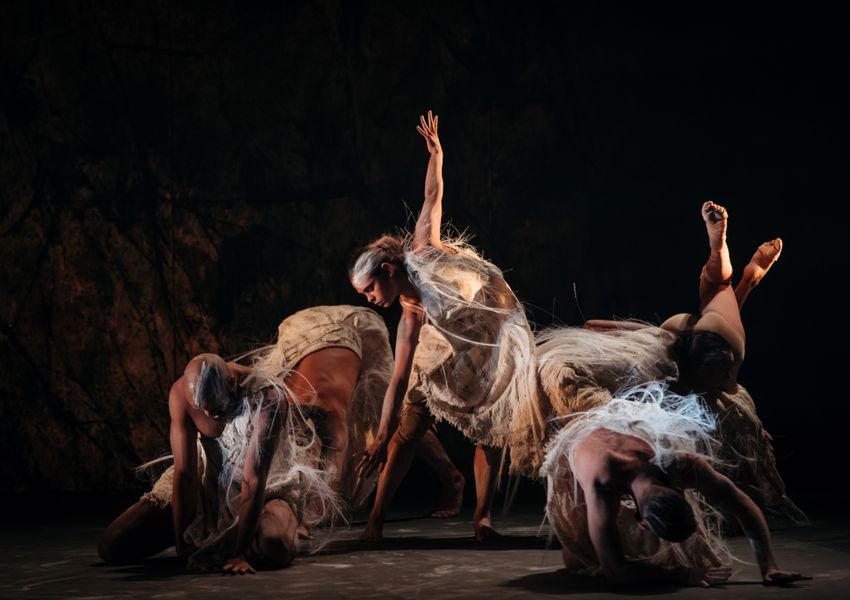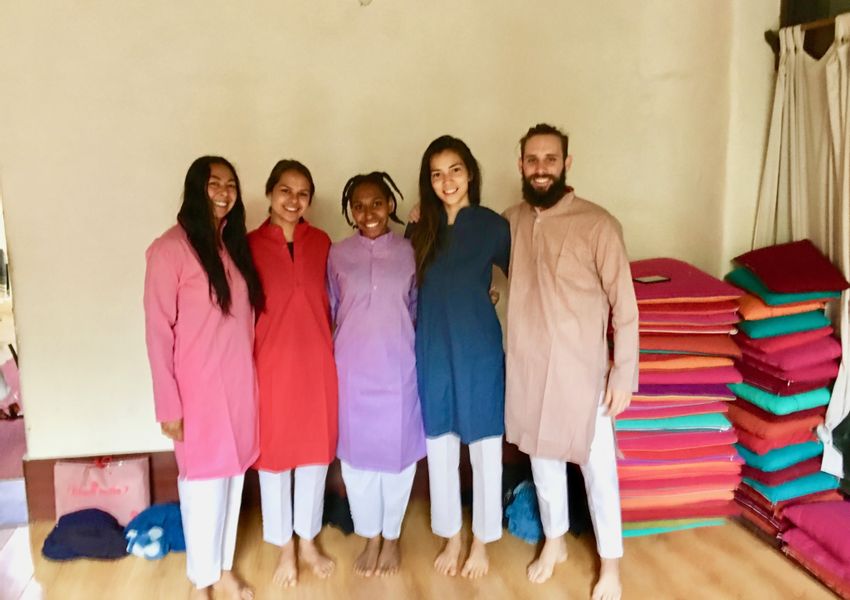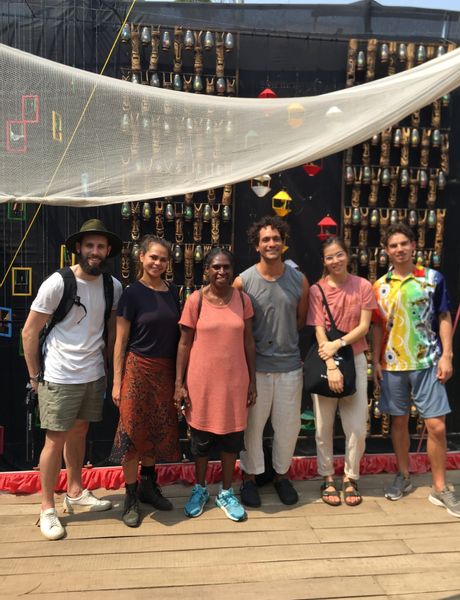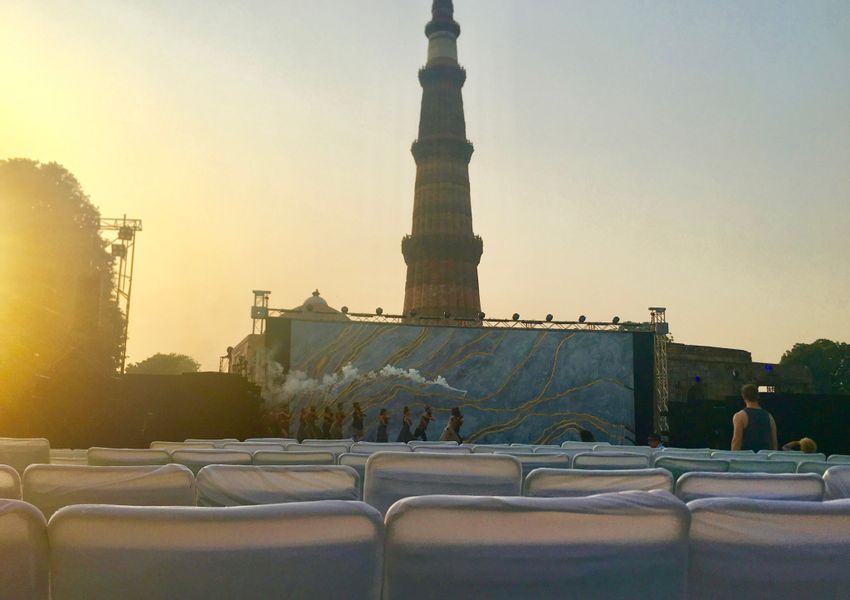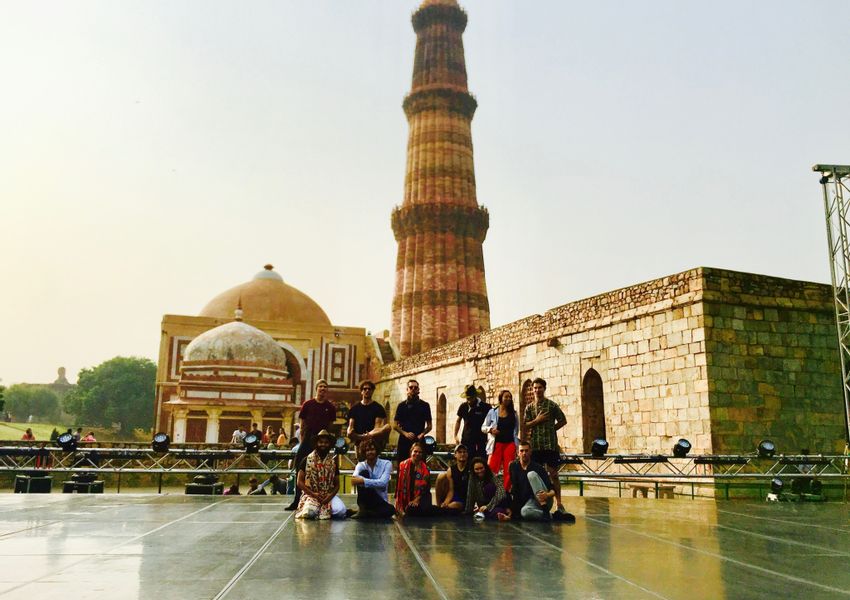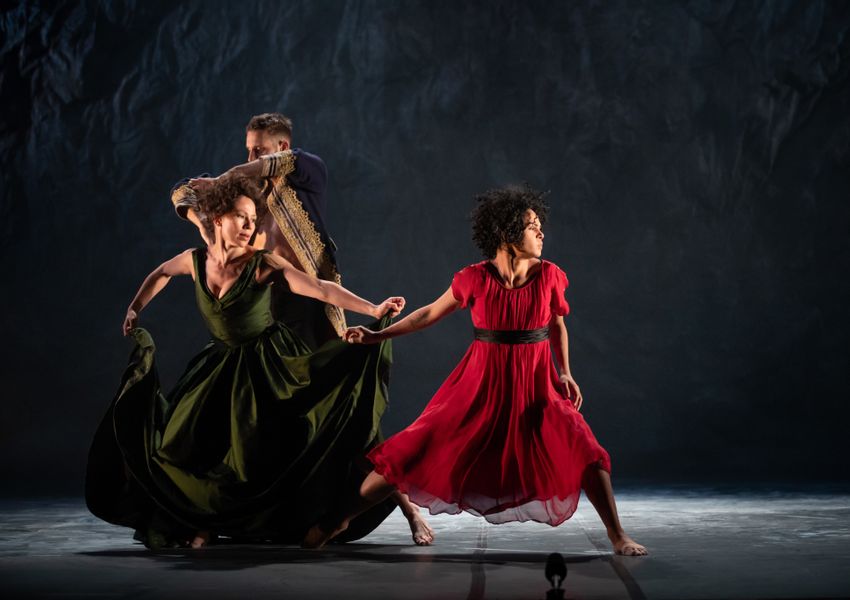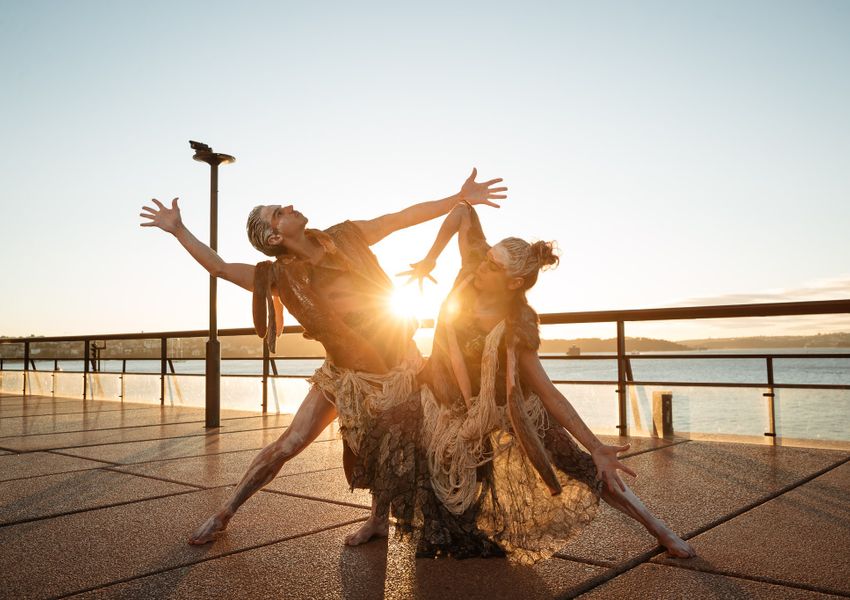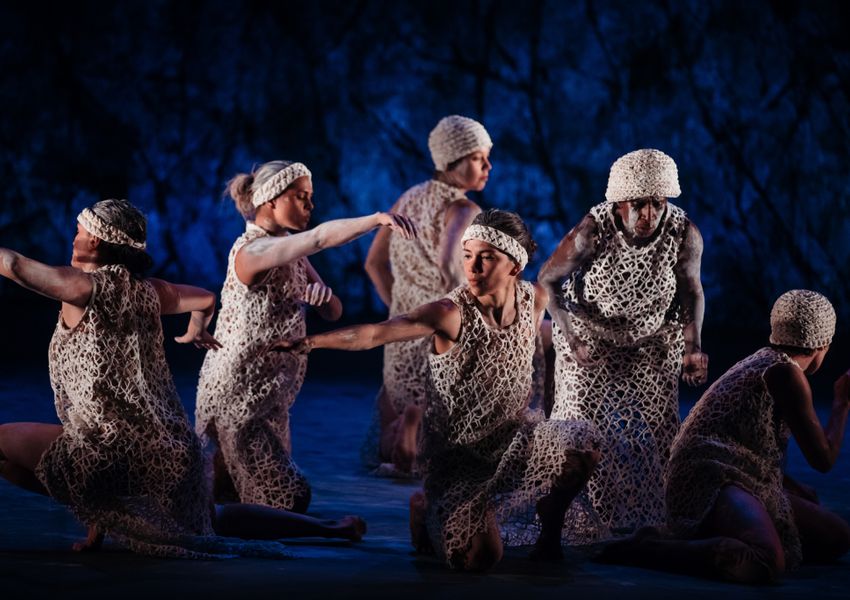The first style of dance I encountered was lyrical hip-hop – there wasn’t really any proper technique, it was just a style for us in high school. Rika (Hamaguchi) was at the same dance school and high school with me back in Broome. She was three years ahead. I looked up to Rika as an inspiration – we sometimes performed together in Broome with our high school dance group and she always took the time to help us out and look out for us. She went to NAISDA Dance College, and then I did too. I’m the only child in my family to have moved away from home to study, so this was a very big deal for me … it was really scary. I knew I was going to be alright though, because there were four other Broome mob there at NAISDA to help me feel at home.
At NAISDA, I experimented with ballet, jazz, contemporary, and even the Horton Technique. It was also the first time I’d really experienced traditional dance. We learnt both Aboriginal and Torres Strait Islander traditional dances, and we even did a residency at St Paul’s Village, a community on Mua Island in the Torres Strait. There, we lived the way the locals lived, and we danced every single day – it was amazing. There’s a real power in coming together through traditional dance – with everyone singing, playing instruments and dancing the one story as one community. I felt empowered by this experience and it fuelled my passion to learn more about my own culture, and my own dances.
There’s traditional dance in Broome, but most of it is really simple steps. A lot of the knowledge has been lost – it was taken away. My mob are still trying to reconnect to Yawuru culture. When I do traditional dance I feel great, but this feeling is mixed with a sense of sadness around not knowing my own traditional dances. In a way though, learning other mobs’ traditional dances helps me to connect, and it makes me want to learn more about my culture, and to try to rekindle more stories and dances from back home.
